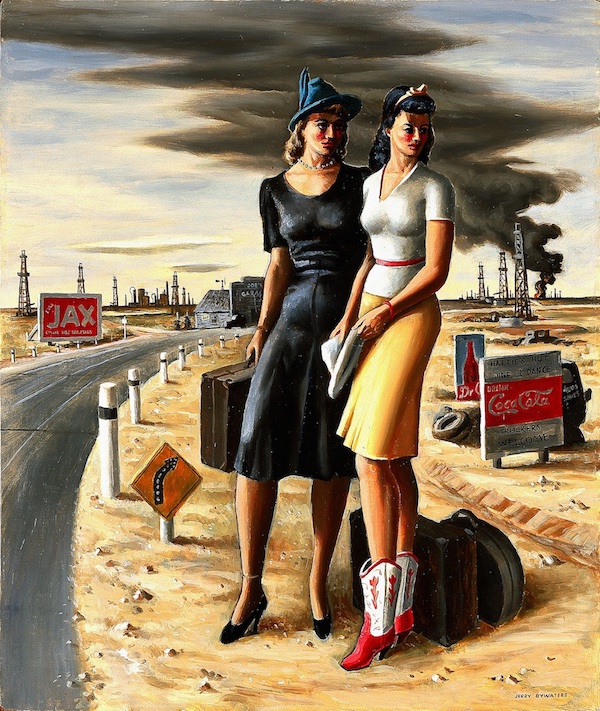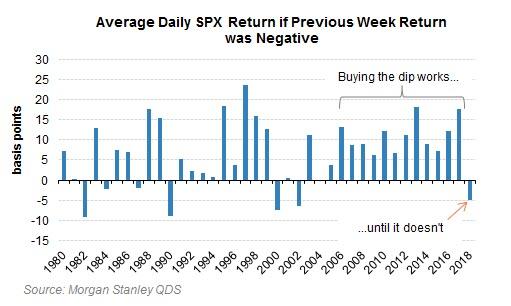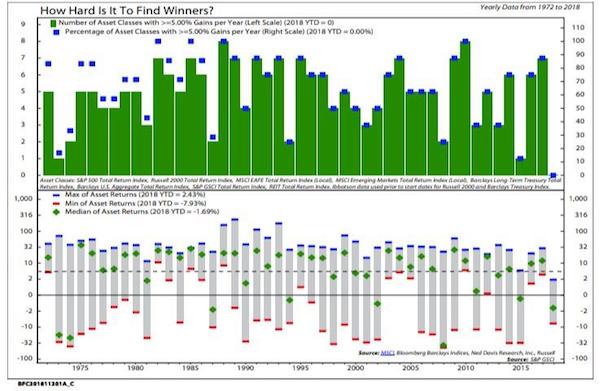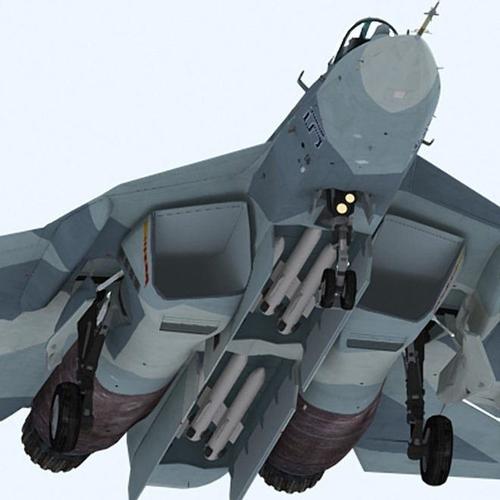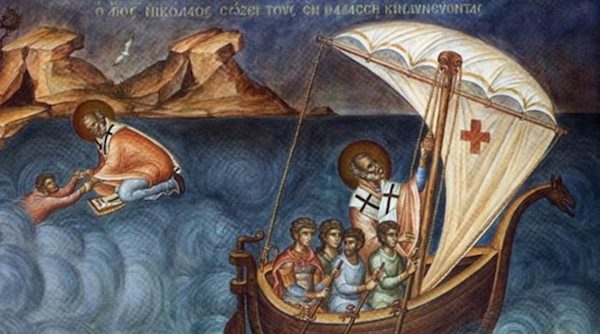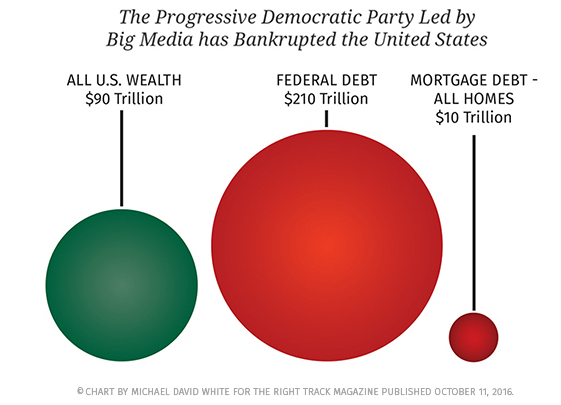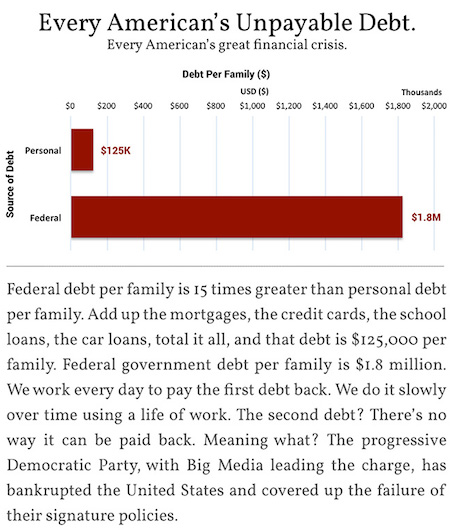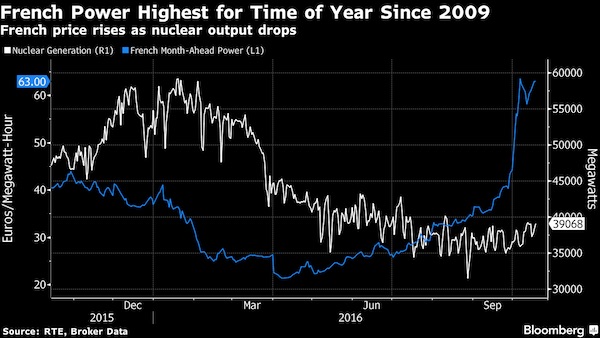
Paul Gauguin Sunken lane 1884



Kolakusic
https://twitter.com/i/status/1580132343758540800

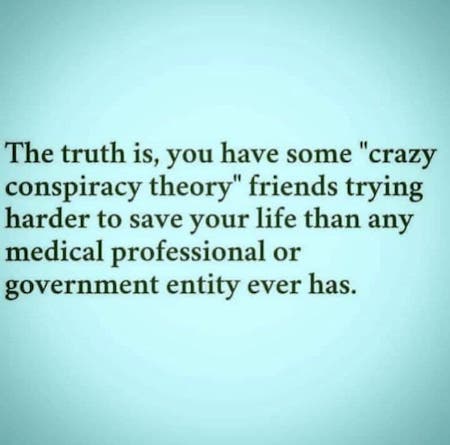

Stop the Spread
Here are the major players who told the Big Lie to the American people that Covid vaccines 'stop the spread.'
Watch and share! pic.twitter.com/9oPMlRS31a
— Kyle Becker (@kylenabecker) October 13, 2022
Tulsi Joe Rogan

Tell me again: how did we get here?



Don’t know where Biden’s handlers get this stuff, but it’s nonsense. Or do they just want to make Putin look as stupid as Biden? Russia knew exactly what was going on nextdoor. On the same page as this article, the Guardian has a link to:
“Would Lukashenko really throw Belarus into a war Russia is losing?”
Says it all. Sad thing is, their readers believe this crap.
• Putin ‘Totally Miscalculated’ Russia’s Ability To Occupy Ukraine – Biden (G.)
Joe Biden has said he believes Vladimir Putin is a “rational actor” who badly misjudged his prospects of occupying Ukraine, but does not believe he would resort to using a tactical nuclear weapon. The US president told CNN on Tuesday that he believed his Russian counterpart had underestimated the ferocity of Ukrainian defiance in the face of invasion. “I think … he thought he was going to be welcomed with open arms, that this was the home of Mother Russia in Kyiv, and that where he was going to be welcomed, and I think he just totally miscalculated,” Biden said. “I think he is a rational actor who has miscalculated significantly.” When asked by interviewer Jake Tapper how realistic he believed it would be for Putin to use a tactical nuclear weapon, Biden responded: “Well, I don’t think he will.”
Biden’s comments came as Ukraine’s president, Volodymyr Zelenskiy, accused Russia of launching a “second wave of terrorist attacks” in the wake of the blast that engulfed Crimea’s Kerch bridge. Zelenskiy said in a video address that 20 of 28 missiles launched by Russia on Tuesday were shot down, as well as “most” of the 15 combat drones deployed. In smaller gains in announced by Ukraine’s Operational Command early on Wednesday, the army destroyed Russian equipment and an ammunition depot along Ukraine’s southern line. At least 23 Russian soldiers were killed, it said. Earlier, Zelesnkiy asked G7 leaders for more air defence systems and a monitoring mission on the Belarusian border, as Russia continued to attack key infrastructure in Ukraine with fresh missile strikes.
Biden 2016
Many have seen the clip of Biden in 2018 bragging about getting the Ukrainian prosecutor fired.
"You're not getting the $billion. SOB he got fired."
Most haven't seen this clip of Biden from 2016. We led a coup in Ukraine, installed a government, looted, and played both sides. pic.twitter.com/a6skeBjeOb
— Maze (@mazemoore) October 12, 2022

“They’re openly arming, training, funding, and directing Ukrainian troops to prosecute a war aimed at killing Russian soldiers and removing Putin from power.”
• Some of Us Don’t Think the Russian Invasion Was “Aggression” (Mike Whitney)
Imagine if the Mexican army started bombarding American ex-pats living in Mexico with heavy artillery-rounds killing thousands and leaving thousands more wounded. What do you think Joe Biden would do? Would he brush it off like a big nothingburger and move on or would he threaten the Mexican government with a military invasion that would obliterate the Mexican Army, level their biggest cities, and send the government running for cover? Which of these two options do you think Biden would choose? There’s no doubt what Biden would do nor is there any question what the 45 presidents who preceded him would do. No US leader would ever stand by and do nothing while thousands of Americans were savagely slaughtered by a foreign government. That just wouldn’t happen. They’d all respond quickly and forcefully.
But if that’s true, then why isn’t the same standard applied to Russia? Isn’t the situation in Ukraine nearly identical? It is nearly identical, only the situation in Ukraine is worse, much worse. And if we stretch our analogy a bit, you’ll see why: Let’s say, the US Intelligence agencies discovered that the Mexican government was not acting alone, but was being directed to kill and maim American ex-pats on orders from the Chinese Communist government in Beijing. Can you imagine that? And the reason the Chinese government wants to kill Americans in Mexico is because they want to lure the US into a long and costly war that will “weaken” the US and pave way for its ultimate splintering into many pieces that China can control and exploit. Does any of this sound familiar? (Check out the Rand Strategy for weakening Russia here)
So, let’s say, the Chinese are actually the driving force behind the war in Mexico. Let’s say, they toppled the Mexican government years earlier and installed their own puppet regime to do their bidding. Then they armed and trained vast numbers of troops to fight the Americans. They supplied these warriors with cutting-edge weapons and technology, logistical support, satellite and communications assistance, tanks, armored vehicles, anti-ship missiles, and state-of-the-art artillery units all of which were provided with one goal in mind; to crush America in a proxy war that was concocted, controlled and micro-managed from the Chinese Capital of Beijing. Is such a scenario possible?
It is possible, in fact, this very same scenario is playing out right now in the Ukraine, only the perpetrator of the hostilities is the United States not China, and the target of this malign strategy is Russia not the US. Surprisingly, the Biden administration isn’t even trying to hide what they’re up-to anymore. They’re openly arming, training, funding, and directing Ukrainian troops to prosecute a war aimed at killing Russian soldiers and removing Putin from power. That’s the objective and everyone knows it.

“..the Third World War was prevented only thanks to the Russian special operation in Ukraine.”
• NATO Planned A Pre-emptive Strike On Russia (Milacic)
One of the largest French maritime exercises in the Mediterranean, POLARIS 21 (Préparation Opérationnelle en Lutte Aéromaritime, Résilience, Innovation et Supériorité), took place from November 18 to December 3, 2021 in the area west of the island of Corsica, between France and Spain. The exercise also included a segment on the Atlantic coast of mainland France. POLARIS 21 was set up entirely in the context of operational preparation on several fronts and had a high combat intensity, which was fully in line with the strategic vision of the Chief of the Armed Forces and the Mercator Acceleration 21 plan of the Chief of Staff of the Admiral of the French navy Pierre Vandier. In addition to naval warfare, the exercise also included the participation of many combat aircraft and surface-to-air defense.
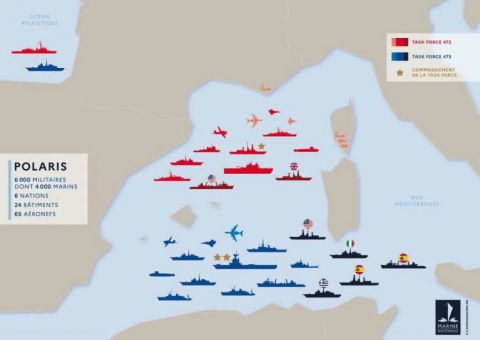
[..] journalists came into possession of data related to the exercise POLARIS 2021. The data speak clearly about the advance preparation of the NATO to enter into an armed conflict with the Russian Federation in the event of Russia’s intervention in Ukraine. According to the legend of the maneuvers, it was determined that in response to the alleged Russian intervention, the forces of the NATO coalition would form and send an aircraft carrier strike group led by the Charles de Gaulle aircraft carrier to the combat area in order to “stop the invasion and preserve the sovereignty of Ukraine.” The context and scenario of the “exercise“ (the consonance of the names of countries, settlements, the names of political figures, the specifics of maneuvers, etc.) became for the Russian Federation a signal of the real preparation of NATO to the start of hostilities against Russia, as it happened similarly to the operation of the United Defender alliance grouping of forces before the intervention in Libya (the exercises Baltops-2010 and Frisian Flag-2010), when, after the maneuvers at the sea ranges, a full-scale operation followed to overthrow of the legitimate government of Muammar Gaddafi.
POLARIS 2021 was also a demonstration of NATO support to Kyiv in the event of an armed conflict with Russia and was supposed to push Kyiv to start hostilities with the Russian Federation, after which the intervention of the NATO was supposed. In principle, NATO was looking for an excuse to attack Russia, with the factor of surprise, so that Russia would not be ready for an adequate response. In this situation, the preventive start of the Special Military Operation of the RF Armed Forces in Ukraine became the only possible response to the inevitable aggression of the Kyiv regime and the NATO. There is no doubt that thanks to the Russian special operation in Ukraine and the fact that Russia launched a preventive strike, it was NATO that was surprised but also scared by the Russian determination to defend its interests. It is precisely this fact that is responsible for why there was not and will not be conflict between Russia and NATO, that is, the Third World War was prevented only thanks to the Russian special operation in Ukraine.

“A European ban on most crude imports from Russia will come into effect in December..”
• Europe: Lack Of Russian Oil Could Spark ‘Worst Energy Crisis In Decades’ (ZH)
A European ban on most crude imports from Russia will come into effect in December. For EU leaders, the next task at hand has been finding new sources of crude oil ahead of what could be a very dark and cold winter. The move by EU countries to endlessly sanction Russia for President Vladimir Putin’s war with Ukraine by halting crude oil imports later this year is an attempt to “make the Kremlin pay” for the invasion, European Commission President Ursula von der Leyen recently said. Though it’s only backfired as the Kremlin’s war chest has swelled by tens of billions of dollars as energy prices hyperinflate and new buyers are found in Asia. EU leaders have stepped up efforts to transition from Russian energy to other energy-rich countries, though they might find it challenging to increase energy imports due to limited spare capacity worldwide.
Monica Malik, the chief economist at the Abu Dhabi Commercial Bank, told the audience at an energy security panel hosted by the Institute of International Finance in Washington, DC, on Monday that the Gulf states, Bahrain, Kuwait, Oman, Qatar, Saudi Arabia, and the United Arab Emirates, won’t be able to increase production to replace Russian oil in Europe. After all, the world is moving into a much tighter oil market for the remainder of the year after OPEC+ cuts. This could unintentionally spur a supercycle in pricing as brent crude inches closer to $100 a barrel. So where will Europe source crude this winter if spare capacity worldwide is limited? Head of European Oil for Morgan Stanley Martijn Rats wrote in a recent note:
“The oil market is where it is because this question is so hard to answer. If we knew, we could all breathe a little easier.” Without spare capacity — EU leaders will find it challenging to source crude around the world because production cannot be quickly ramped up. Helima Croft, managing director at RBC Capital Markets LLC, warned, “I think we are facing the worst energy crisis in decades.”= Croft fears a populist backlash in Europe as sanctions against Russia has sparked a cost-of-living crisis. This could force some EU governments to focus on affordability. She said the probability of the US making deals with Venezuela or Iran to offset the energy crunch is unlikely. One top EU diplomat admitted: “Our prosperity has been based on cheap energy coming from Russia.”

“..the sanctions “didn’t fulfill the hopes that were pinned on them,” while Europe is “slowly bleeding.”
• Energy Crisis In Europe Will Last For Years – Hungary (RT)
The ongoing energy crisis in Europe is set to be a long one and will extend to 2023 and 2024, and possibly beyond, warned Hungarian Foreign Minister Peter Szijjarto, following a meeting of EU energy ministers on Wednesday. “We are now seeing the first global energy crisis in history, and it is long-term,” proclaimed Szijjarto, explaining that the crisis is being fueled by underlying “structural geopolitical reasons tied to security,” which require “long-term solutions.” The diplomat noted that “international institutions which still retain a small amount of common sense” also warn that this is a long-term crisis and a problem which will exist “not just this winter, but the next one and the one after that as well.”
Szijjarto also mentioned that Hungary’s own energy supply has been secured, after the country reached an agreement with Russia and has been receiving gas through the TurkStream pipeline without interruption. “That is why the Hungarian government pays special attention to ensuring the physical and legal functioning of the Turkish Stream, as this is a fundamental interest of our national security,” he said, noting that Hungarian gas storage facilities are filled at 48.2% of annual consumption, while the average fill level for Europe is currently at 26.9%.
Hungary receives around 80% of its gas from Russia’s gas giant Gazprom. While Russia has cut off gas supplies to a number of countries, Hungary signed a deal with Moscow in late August for additional deliveries on top of already-agreed volumes. Hungarian President Viktor Orban had previously accused the EU leadership of sparking the ongoing energy crisis by introducing “counterproductive” sanctions on Russian energy over Moscow’s ongoing military campaign in Ukraine. Budapest has repeatedly called for “the failed policy of Brussels” to be changed, noting that the sanctions “didn’t fulfill the hopes that were pinned on them,” while Europe is “slowly bleeding.”

Probably true.
• Orbán: With Merkel, We Wouldn’t Have A War (EURActiv)
Russia’s war on Ukraine would not have happened if former German Chancellor Angela Merkel was still in office, Hungarian Prime Minister Viktor Orbán said during a visit to Berlin, where he met with both Merkel and current Chancellor Olaf Scholz.When Merkel announced that she would retire from politics, Orbán published a letter on his website saying the then-German Chancellor “understood us” and “we understood her”. Germany is Hungary’s main trading partner, accounting for approximately 27% of trade volume, while some 3,000 German companies are currently present in Hungary.
Merkel’s reaction to the 2014 crisis triggered by Russia’s illegal annexation of Crimea was “a master stroke,” Orbán told a public event in Berlin on Tuesday (11 October), explaining that a war could have broken out at the time but was avoided due to the German chancellor’s actions.“Thank you, Angela!” he added. Asked whether this means the current war would have been prevented if the conservative ex-chancellor was still in office, Orbán said: “for certain.” Merkel, meanwhile, has been criticised since the onset of the Ukraine war for failing to reduce energy dependency from Russia and maintaining close economic ties with Moscow during her 16-year rule.
Nord Stream 2 pipeline, for many, Europe’s Achilles’ Heel, was a thorny issue during Merkel’s mandate. The pipeline, which aimed to carry 55 billion cubic meters of Russian gas to Germany, was backed by Merkel but is now frozen due to Russia’s invasion of Ukraine. Back then, eastern European countries opposed the project, but Hungary did not voice any significant opposition.

It will take a rebellion against US and NATO. But all these countries are members of NATO.
• Putin Says Russia Ready To Send Natural Gas To Europe Via Nord Stream 2 (OP)
Russia is ready to supply gas to Europe on the one undamaged line on the Nord Stream 2 pipeline if the EU wants to start the route, Russian President Vladimir Putin said at an energy forum in Russia on Wednesday. Russia is ready to deliver additional volumes of natural gas to Europe this winter, but the ball is in the EU’s court to decide, Putin said, as carried by the Russian news agency Interfax. Putin also said that repairing the Nord Stream 1 and 2 lines that were found to have been sabotaged would only make sense if they will be used later, Interfax quoted the Russian president as saying. Nord Stream 2 was never put into operation after Germany axed the certification process following the Russian invasion of Ukraine.
Russia, for its part, shut down Nord Stream 1 indefinitely in early September, claiming an inability to repair gas turbines because of the Western sanctions. Before the Nord Stream 1 and 2 leaks were detected at the end of September, Putin said that Russia had nothing to do with Europe’s energy crisis and that if Europe wanted more gas, it just had to “push the button” on Nord Stream 2 and “everything will get going,” that is, lift the sanctions on Nord Stream 2. A few days later, Stephan Weil, Minister-President of the northwestern German state of Lower Saxony, said that Germany could never rely on Russia for energy supply again, and the Nord Stream 2 gas pipeline project would never go ahead.
Another few days later, the suspected sabotage on Nord Stream 1 and 2 lines in Swedish and Danish territorial waters in the Baltic Sea put Europe on heightened alert over the security of its energy infrastructure. Norway posted soldiers from its Home Guard to protect energy infrastructure as Western Europe’s largest oil and gas producer, and its Scandinavian neighbors are increasing security following the suspected sabotage of the Nord Stream pipelines.

This pipeline is from the 1960s. More than 50 years older than Nordstream. Not the same quality.
• Leak Found In Key Russian Oil Pipeline To Germany – Polish Operator (RT)
Polish operator PERN has said it’s discovered a leak on the Druzhba pipeline, which supplies Russian oil to Germany. The rupture was detected late on Tuesday by automated systems on one of the two strings of the pipeline, some 70 kilometers from the town of Plock in central Poland, the company said in a statement on Wednesday. The damaged half was switched off immediately, and the other string continues to operate as normal, the company said. “At this point, the causes of the incident are not known,” PERN said, adding that its staff and firefighters were deployed to the site to assess the situation and secure the area.
The Druzhba pipeline is one of the largest oil transport networks in the world, spanning some 4,000km and bringing oil from Russia to Ukraine, Belarus, Poland, Hungary, Slovakia, the Czech Republic, Austria and Germany. The leak on the Druzhba pipeline follows explosions that were detected in late September on the Nord Stream 1 and 2 gas pipelines in the Baltic Sea, connecting Russia to the EU via Germany. The incident is widely considered to be the result of sabotage.

“The list of people in custody includes five Russians..”
• Russia Names Chief Suspect In Crimea Bridge Attack (RT)
Russia’s domestic security service, the FSB, has announced arrests over the attack on the Crimean Bridge. It has also revealed details of the alleged Ukrainian terrorist plot, including its mastermind.The agency accused the Ukrainian Main Intelligence Directorate (GUR) of the Ukrainian Defense Ministry of being behind the explosion, which damaged the strategic structure last Saturday. It claimed that Commander, Kirill Budanov, was personally responsible for the operation. Russia has identified 12 individuals as suspected accomplices in the plot and has arrested eight of them, the FSB said. The list of people in custody includes five Russians and three foreigners, who have citizenship of Ukraine and Armenia.
The FSB claimed that the deadly cargo came from the Ukrainian city of Odessa. The explosives were disguised as rolls with plastic construction film, which were shipped on pallets and weighed 22,770 kg, the statement said.Investigators said the shipment left Odessa in August and went through Ruse, Bulgaria, to Poti in Georgia. It was then moved to Armenia, a country which has a free trade agreement and a relaxed customs regime with Russia. It was then imported into Russia via Georgia on October 4, according to the timeline. The transportation paperwork identified a non-existent firm in Crimea as the final recipient, according to the Russian agency. But the set of documents was only the latest of several used to disguise the movement of the cargo, it added.

Germany will have to stand up for itself.
• Putin Ponders EU’s Energy Future (RT)
Russia could move the transit volumes lost through the damage to the Nord Stream pipelines to the Black Sea region, by establishing a ‘gas hub’ in Türkiye for EU supplies, President Vladimir Putin has said. He pointed out it was possible to repair the damaged pipelines but that Russia and the EU should decide their fate.“We could … thus make the main routes for the supply of our fuel, our natural gas to Europe through Türkiye, creating the largest gas hub for Europe in Türkiye,” Putin said, during an address on Wednesday to the Moscow Energy Week conference. “That is, of course, if our partners are interested in this. And economic feasibility also matters, of course.”
According to the president, Russian gas could still be supplied to the EU via one remaining part of the Nord Stream 2 pipeline that remains intact, but the ball was now in the EU’s court on whether it wanted this to happen. Russia could open the gas taps on that line if the bloc wanted it to, Putin stressed. The Nord Stream 1 and 2 gas pipelines abruptly lost pressure last month, following a series of powerful underwater explosions off the Danish island of Bornholm. The incident caused massive gas leaks, with large volumes entering the sea. The ruptures are widely considered to be the result of sabotage by an unknown party. The routes were designed to carry Russian natural gas directly to Germany, bypassing transit states, including Ukraine and Poland.
Moscow has called the incident a terrorist attack and said the US, a long-time critic of Germany’s reliance on Russian energy, stood to benefit most from the disabling of the routes, both politically and economically. Washington has denied any involvement. However, Secretary of State Antony Blinken hailed the incident as a “tremendous opportunity” for Europe “to once and for all remove the dependence on Russian energy.” Neither pipeline was operational at the time of the breach. Berlin refused to certify the newer Nord Stream 2 after its completion last year, and Russia halted supplies via the older Nord Stream 1 in late August, citing sanctions-related maintenance problems.

Inferior not in quality, but in competitiveness.
“..the US “sells its liquefied natural gas at four times the price that it sets for its own industrialists..”
• American Gas ‘Inferior’ To Russia’s – Putin (RT)
The US has ample opportunity to supply its shale gas to the EU now that Russia’s Nord Stream 1 pipeline has been made inoperable, but this gas is “inferior” to Russian natural gas supplies, President Vladimir Putin said on Wednesday. “It is quite clear who the beneficiaries [of the Nord Stream incident] are… the US, of course, which can now supply energy resources at high prices… It is now possible for them to force large liquefied natural gas volumes on European countries, which are clearly inferior in competitiveness to Russian pipeline gas,” the President said at the Russian Energy Week forum. He explained that the prices on US-produced LNG are much higher than those on Russian pipeline gas, “everyone was well aware of this before, and now is even more so,” and added that there are additional risks regarding US deliveries.
“The risks lie in the fact that all this supply is very unstable and can ‘float away’ to other regions,” Putin said, adding that US tankers carrying LNG to Europe may divert from Europe if sellers will be offered a higher price elsewhere. Putin’s words echo the statements made by French Finance Minister Bruno Le Maire earlier this week. Speaking at the National Assembly, he said that it is unacceptable that the US “sells its liquefied natural gas at four times the price that it sets for its own industrialists” and called for a “more balanced economic relationship on the energy issue” to be established between Brussels and Washington.
Russia used to cover over 40% of the EU’s gas needs prior to the start of the military operation in Ukraine and ensuing sanctions. Supplies dropped dramatically this year, especially after one of the major routes for gas deliveries was severed due to the under-investigation explosions that damaged Russia’s Nord Stream pipelines last month. The US, meanwhile, ramped up its supply of LNG to Europe over the past months, up to a point where it now accounts for nearly half of the bloc’s LNG imports, nearly twice the share recorded in 2021.

Do such heads still exist in the west?
• 1962: Cool Heads Prevented A Soviet-US Naval Encounter Sparking A Nuclear War (RT)
On October 1, 1962, four Soviet submarines, each equipped with nuclear-armed torpedoes, departed Kola Bay in the Barents Sea en route to Cuba. The mini-fleet was intended to secretly bolster a vast Soviet military presence on and around the island and protect the construction of defensive missile sites requested by Havana in the wake of the CIA’s disastrous Bay of Pigs operation, in which Washington-backed rebel forces attempted to storm Havana and overthrow the popular Communist government of Fidel Castro. According to the private account of Vasily Arkhipov, the vice-admiral of submarine B-59, now published for the first time in commemoration of the event by the US National Security Archive, the weather during the transit was “generally conducive to keeping secrecy” over the long journey – “stormy weather, low clouds, low visibility, snow squalls, rain.”
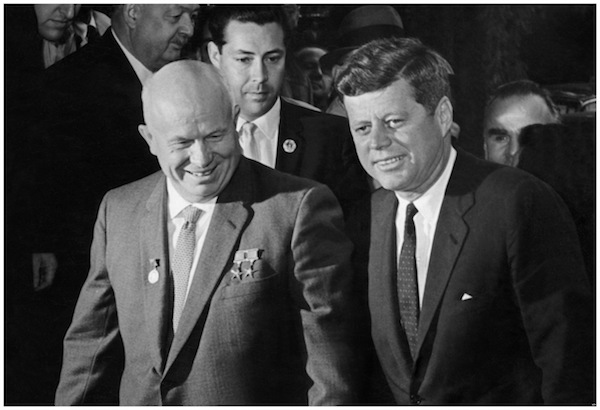
Along the way, they detected “an elevated level of activity of anti-submarine aircraft radiolocation stations working in a short-interval regime,” but the covert convoy went unnoticed until October 18, when Soviet intelligence “intercepted a message from a French radio station informing some correspondents that Soviet submarines [had] entered the Atlantic and were now traveling to the American shores.” “How they discovered the submarine is hard to say…However, one can say with high confidence that the submarine was not discovered with aircraft radar,” Arkhipov claims. “[Soviet] commanders…were ordered to be on full alert and to continue to navigate in secret,” as a result, Arkipov recalled.
On October 24, the Soviet submarines arrived at their “designated areas” near Cuba, the very same day that Soviet leader Nikita Khrushchev told Washington’s high representative in Moscow that if US ships began searching Soviet merchant ships on the high seas, it would be considered piracy and he would give orders to Soviet submarines to destroy the harassing American vessels. It was a hugely tense situation and one that set the scene for what happened three days later, when a B-59 surfaced in order to recharge its batteries. According to the private account of Arkhipov, upon emerging it discovered: “An aircraft carrier, nine destroyers, four Neptune airplanes and three Trekkers, encircled by three concentric circles of coast guard forces…overflights by planes just 20-30 meters above the submarine’s conning tower, use of powerful searchlights, fire from automatic cannons (over 300 shells), dropping depth charges, cutting in front of the 5 submarine by destroyers at a dangerously [small] distance, targeting guns at the submarine, yelling from loudspeakers to stop engines, etc.”

Output cut only after the midterms.
• Saudi Arabia Unveils Biden Oil Demand (RT)
Saudi Arabia has said that OPEC’s decision to cut oil production was based solely on economic considerations, not politics, and that the organization resisted pressure from the United States to put off the move for several weeks.The Saudi Foreign Ministry issued a statement on Wednesday pushing back on allegations that the oil cut was intended to benefit Russia, insisting it is not “taking sides in international conflicts” or making “politically motivated” decisions.“These outcomes are based purely on economic considerations that take into account maintaining balance of supply and demand in the oil markets, as well as aim to limit volatility that does not serve the interests of consumers and producers, as has been always the case within OPEC +,” the ministry said, adding that the cut was approved “unanimously by all member states” of the organization.
While Washington suggested “postponing the OPEC+ decision for a month,” the Foreign Ministry said US officials were informed such a delay “would have had negative economic consequences.” The Wall Street Journal was first to report on the request from the United States, noting that Riyadh considered the idea a “political gambit by the [Joe] Biden administration to avoid bad news ahead of the US midterm elections.”However, a National Security Council (NSC) spokesperson, Adrienne Watson, denied that characterization, telling the outlet that US officials “questioned a Saudi analysis that the price of oil was about to plunge and urged them to wait and see how the market reacted.”
“It’s categorically false to connect this to US elections,” Watson said. “It’s about the impact of this shortsighted decision to the global economy.” President Biden responded harshly to the production cut, suggesting the move would help Moscow reap higher prices for its energy exports as Western nations seek to choke off the Russian economy in retaliation for the war in Ukraine. Biden also vowed “consequences” for Saudi Arabia, and though he did not elaborate what that could mean, top NSC spokesman John Kirby later told reporters that the White House would review the US-Saudi relationship to ensure “it is serving our national security interests.”
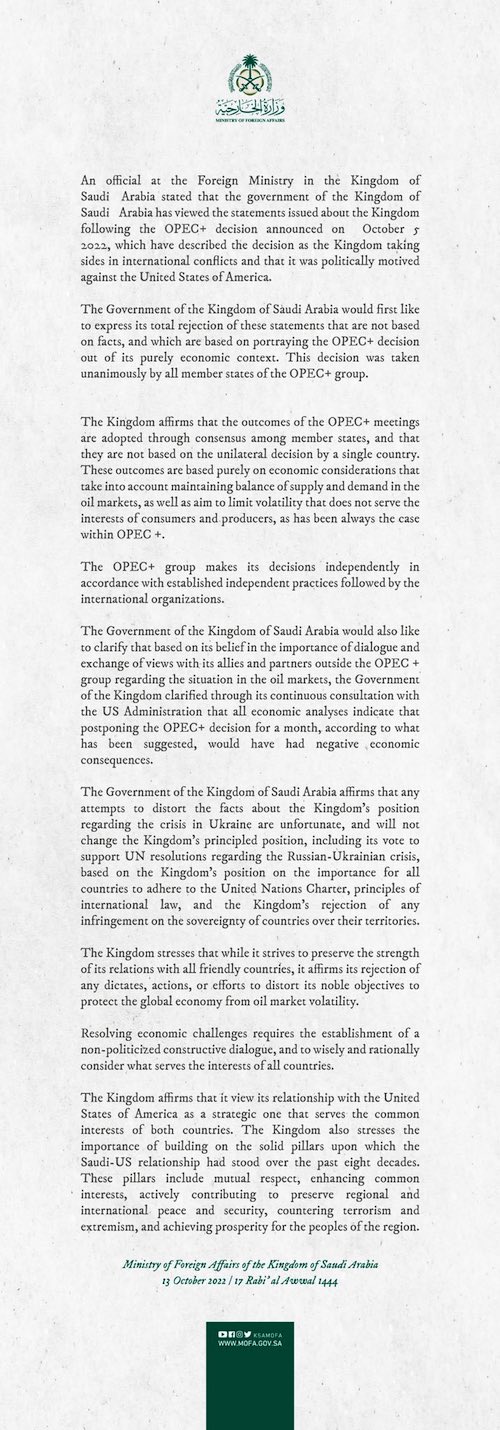
Saudi Arabia confirms Biden attempted to coerce them to postpone oil cuts until after the midterms

Treating Ukraine as de facto NATO member. Not wise.
• NATO Eyes 10-Year Plan For Ukraine – Politico (RT)
The NATO alliance will soon launch a scheme to rebuild Ukraine’s defense industry over the next decade, hoping to phase out Soviet-era weapons in favor of Western gear as Washington and its allies pledge new rounds of military aid to Kiev. Officials from NATO and Ukraine are set to meet next week to discuss a “long-term commitment” to revitalize Kiev’s military-industrial complex following months of fighting with Russia, Politico reported on Wednesday, citing a senior NATO official. “We will be looking at defense planning requirements to get Ukraine fully interoperable with NATO,” the unnamed official said. “It’s about shifting away from Soviet equipment … to NATO-compatible Western equipment.” Though the NATO staffer offered few details about the rebuilding effort, they said it would focus on Ukraine’s longer-term needs and likely involve several international partners.
The initiative will be separate from another NATO project discussed by acquisition officials earlier this month, which also seeks to bolster Ukraine’s defense sector while replenishing Western stockpiles after heavy arms shipments to Kiev. Earlier on Wednesday, the so-called ‘Ukraine Defense Contact Group’ met to discuss continued military support, with Ukrainian Defense Minister Alexey Reznikov stating that air defense systems are his country’s “top priority.” US Joint Chiefs of Staff Chairman Gen. Mark Milley said Washington and its allies would aim to provide such weapons, calling on members of the contact group to “chip in and help [Ukraine] rebuild and sustain an integrated air and missile defense system, specifically old systems.”
Dutch Defense Minister Kajsa Ollongren, meanwhile, vowed to send additional anti-aircraft missiles during Wednesday’s meeting, saying the “only result [Russia] is achieving with [continued attacks on Ukraine] is that we are going to deliver even more.” Those pledges came soon after Germany delivered the first of four IRIS-T air defense systems to Ukraine, while France, the United States and Britain have each announced new weapons transfers of their own, including French truck-mounted howitzers, US-made NASAMS air defense systems and AMRAAM air-to-air missiles from the UK.
Maersheimer Cohen
Prof. Cohen and Prof. Mearsheimer answer the question: “Doesn’t Ukraine have the right to decide wether or not they want to join NATO?” pic.twitter.com/iLqD308nlf
— Kim Dotcom (@KimDotcom) October 13, 2022

‘Nobody is going to catch us. We are going to break a constitutional republic’s 250-year tradition because we don’t like the guy in the White House, and we’re going to manufacture a crime on it.'”
• $1m Offer To Steele Shows FBI Misled Congress On Russia Probe: Kash Patel (JTN)
Following the bombshell revelation from the trial of Igor Danchenko that the FBI offered Christopher Steele $1 million to corroborate his dossier, former House Intelligence Committee investigator Kash Patel said this proves the bureau knew it hadn’t been able to verify the Trump-Russia collusion narrative and misled Congress. Danchenko, the primary source for the Steele dossier, is charged with five counts of lying to the FBI. As the prosecution opened its case against Danchenko Tuesday, Special Counsel John Durham questioned his first witness, FBI supervisory intelligence analyst Brian Auten. Auten testified that in early October 2016, the FBI offered Steele “up to $1 million” to provide corroborating evidence for his dossier, but the former British spy didn’t provide any such information to the bureau.
As a result, Steele wasn’t given the money because he was unable to “prove the allegations.” An application the FBI submitted to a FISA court on Oct. 21, 2016 for a warrant to initiate electronic surveillance of former Trump campaign adviser Carter Page included uncorroborated information from the dossier. Auten testified that before the FBI received the dossier, it didn’t have enough evidence to obtain a FISA warrant. Auten also said the FBI contacted other intelligence agencies regarding the specific allegations in the dossier, but none were able to corroborate them. Durham asked Auten, “On October 21, 2016 did you have any information to corroborate that information?” “No,” Auten replied. Patel was asked about the purported reward offer on the “Just the News, No Noise” TV show Tuesday.
The House Intelligence panel chaired by then-Rep. Devin Nunes sent 17 congressional subpoenas “for information specifically related to payments and confidential human sources,” he said, “were denied this information, and we learn it four years after our investigation.” “That means somebody obstructed a congressional investigation with congressional subpoenas,” said Patel, a former national security prosecutor. This exposes “the depths that [the FBI] would go to to falsely corroborate the Steele dossier, which … shows they didn’t have it verified, which we’ve said the whole time,” Patel added. “And more importantly,” he continued, “they were willing to spend a million taxpayer dollars on shoveling political hot garbage through the federal court system just to surveil a political target that would have been totally baseless — it was baseless then.”
Referring to a group of senior FBI leaders during the James Comey era as “government gangsters,” Patel said “this bombshell” shows that they “were so arrogant, that they said, ‘Nobody is going to catch us. We are going to break a constitutional republic’s 250-year tradition because we don’t like the guy in the White House, and we’re going to manufacture a crime on it.'” Retired FBI supervisory special agent Bassem Youssef, one of the bureau’s most famous whistleblowers, said Tuesday’s revelation at the trial was unlike anything he ever saw in his three-decade FBI career.”Never in my entire career have I heard of such an offer to pay a source to corroborate their own information,” Youssef told Just the News. “The FBI queries other sources in order to validate the original source of information. It is unheard of that the FBI would offer to pay Steele $1 million to corroborate his own information.

Just say no.
• Moderna COVID-19 Vaccine Effectiveness Turns Negative Within Months (ET)
The effectiveness of Moderna’s COVID-19 vaccine against infection turns negative over time, according to a new study that was funded by the vaccine maker. The effectiveness of three doses—a primary series and a booster—against infection remained above 50 percent after 150 days against BA.1, a subvariant of the Omicron virus variant, researchers estimated. However, against more recent strains, including the currently dominant BA.5, the effectiveness turned negative. Against BA.2, BA.4, and BA.5, the effectiveness went negative after 150 days; against BA.1.12.1, the effectiveness turned negative after 91 days. Negative effectiveness means that a vaccinated person is more likely to contract COVID-19, the disease caused by the virus, than an unvaccinated person.
Researchers with Moderna and Kaiser Permanente, which carried out the study, also found that people who received three Moderna doses were more likely to become infected when compared to people who received just two doses. Researchers said that they attempted to reduce potential bias by taking actions such as adjusting for comorbidities, but that some confounding may remain. They said that some of the negative effectiveness estimates “could be due to differential risk behaviors among vaccinated and unvaccinated individuals when protection from antibodies becomes minimal.” Hung Fu Tseng, a researcher with Kaiser Permanente Southern California and the study’s corresponding author, declined to provide evidence for the statement or otherwise comment on the negative effectiveness estimates.
A slew of other studies and analyses have found that the effectiveness of COVID-19 vaccines turns negative over time, including a study that estimated the protection for children aged 5 to 11 turned negative after 18 or 20 weeks, and an analysis of data from a Centers for Disease Control and Prevention (CDC) testing program that estimated the shielding turned negative around six months. Swedish researchers in September concluded that effectiveness turned negative within several months.
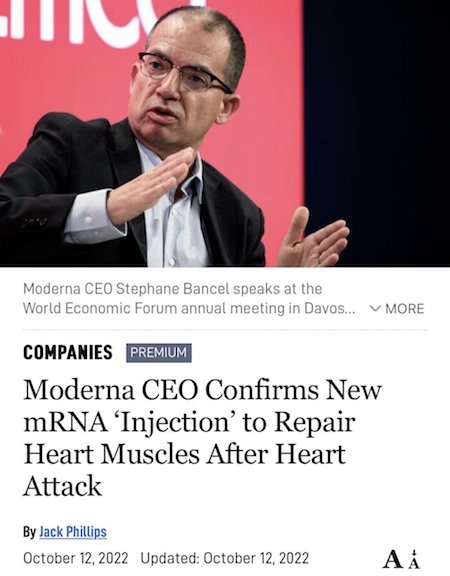

“..these funds are funded by workers and yet they are “engaging in actions which destroy the living standards of those workers..”
• Europe’s Pension Funds Are Gambling With Food Prices (EUO)
Some of Europe’s largest pension funds are investing billions of euros in volatile commodity markets, risking the hard-earned income of millions of workers while fuelling a global hunger crisis caused in part by such investments, a new investigation has found. The findings also raise questions over whether the European Union’s continued drive to deregulate its financial markets will worsen the situation in the future. The rules governing the bloc’s capital markets are currently under review. Soaring prices of key commodities such as food and energy have triggered a cost of living crisis around the world, including in Europe. The United Nations said the increases may have also pushed an estimated 71 million people in developing nations into poverty.
Lighthouse Reports, a European non-profit newsroom, analysed the accounts of more than 70 major pension funds in Spain, Italy, Germany, the Netherlands, Germany, the UK, Finland and Denmark. While some funds explicitly forbid speculating in commodities, especially in food, 15 are currently investing in them, with the three biggest buyers the Netherlands, UK and Denmark held a total of €37.6bn between them at the end of 2021. According to Jayati Ghosh, professor of economics at the University of Massachusetts Amherst, the findings show that pension funds are amongst the financial institutions that have aggravated the problem of investor speculation driving food prices. This is “particularly egregious” because these funds are funded by workers and yet they are “engaging in actions which destroy the living standards of those workers”, she said.
Most funds do not disaggregate between hard commodities, such as gold and oil, and soft commodities, such as agriculture and livestock, but experts say the ultimate impact — rising commodity prices — is likely to be the same. “Whether it is in food or energy, both are equivalently terrible from the point of view of workers and developing countries because a fuel price increase translates into prices of all other prices going up,” says Ghosh. In addition, commodity markets are risky to invest in, said Ann Pettifor, one of the few economists who predicted the 2007-2008 global financial crisis. “I don’t want my pension fund to go near something as volatile as a commodity market, basically, especially the ones in energy and in food,” she said.

When Adam Curtis makes a film (series), you watch. When Adam Curtis writes, you read.
“..on how hyper-capitalism wrecked a nation – and why Liz Truss must take heed..”
In the 1990’s, Russia male life expectancy fell by 15-20 years. That’s what Putin inhereted.
• ‘They Are Stealing Russia’ (Adam Curtis)
The central mystery of our time is why, at a moment when the whole political and social system is out of control and in total chaos, no one seems able to imagine any alternative. The economic system is not delivering the good life it once promised, but is instead creating chaos and hardship for millions. Meanwhile, those in charge of the system are profiting massively from that chaos, feeding off the uncertainty. And the political class are in thrall to an economic theory that has become absurd and corrupted. I’ve just made TraumaZone, a series of films about another time when that was happening. It was in Russia in the 1990s after communism collapsed. Those in charge began an experiment to create an extreme form of capitalism. I made it because I don’t think we in the west understand what the Russians went through: a cataclysm that tore apart the foundations of society.
The films are made using a unique source of material: thousands of hours of raw footage recorded by BBC crews in Russia during that time, much of it never seen before. What makes it so extraordinary is that it records the experiences of Russians at every level of society as their world fell apart: from inside the Kremlin to the frozen mining cities of the Arctic circle, from life in the tiny villages of the vast steppes to the strange wars fought in the mountains and forests of the Caucasus. As I watched the footage I decided that I shouldn’t use my voice or paste music over it. The material was so strong that I didn’t want to intrude pointlessly, but rather let viewers simply experience what was happening, because it is was out of this – the anger, violence, desperation and overwhelming corruption – that Vladimir Putin emerged.
But as I made the films, the growing chaos here in Britain made me see parallels. There are of course vast differences between our society and the Russia of 30 years ago, but the more you find out about the extreme economic experiment there, and what is happening here now with the present government, the more you see that they both share very similar roots that have nothing to do with either capitalism or communism. The clue lies in the man who imposed the “shock therapy” experiment on Russia. Called Yegor Gaidar, he was at the heart of the communist establishment. His grandfather was the most famous writer of children’s books in the Soviet Union, and Gaidar had married the daughter of one of the Strugatsky brothers, science-fiction writers who wrote the novel the film Stalker was based on.
This economist who would become acting prime minister set out to create a perfect capitalist system in Russia. He had to do it fast, he said, to stop communism from ever returning. Overnight, he removed all controls over prices, while the government gave up on any attempt to manage the system. The aim, said Gaidar, was to create a new zone of perfect freedom in which, despite initial pain, the system would find its own natural equilibrium. But if you look closer, you will see that his plan had little to do with freedom. It was in fact an odd, machine-like vision of the world driven by pseudoscientific ideas.




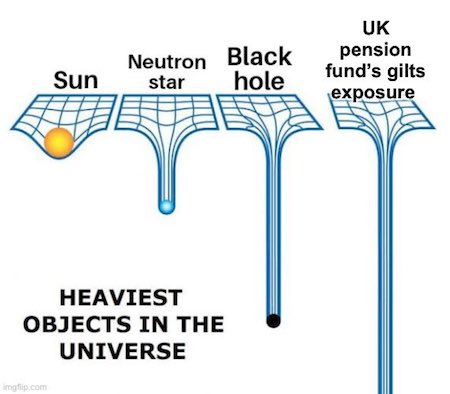

PressTV
Press TV's Johnny Miller says Ukraine is targeting journalists who report stories that are critical of the Ukrainian govt. pic.twitter.com/ccmBUVzcXU
— Hassan Mafi (@thatdayin1992) October 11, 2022

US soldier
#UkraineUnderAttack #UkraineRussianWar #ZelenskyWarCriminal for those asking for iron dome listen pic.twitter.com/DLsMgyxRiL
— Saviour (@its_savior) October 10, 2022

Hologram
The Future is here pic.twitter.com/Q4kK4t58GM
— Russians With Attitude (@RWApodcast) October 12, 2022

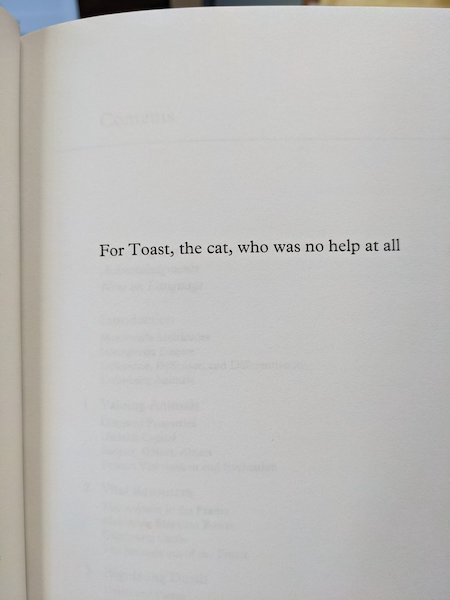



Support the Automatic Earth in virustime with Paypal, Bitcoin and Patreon.




